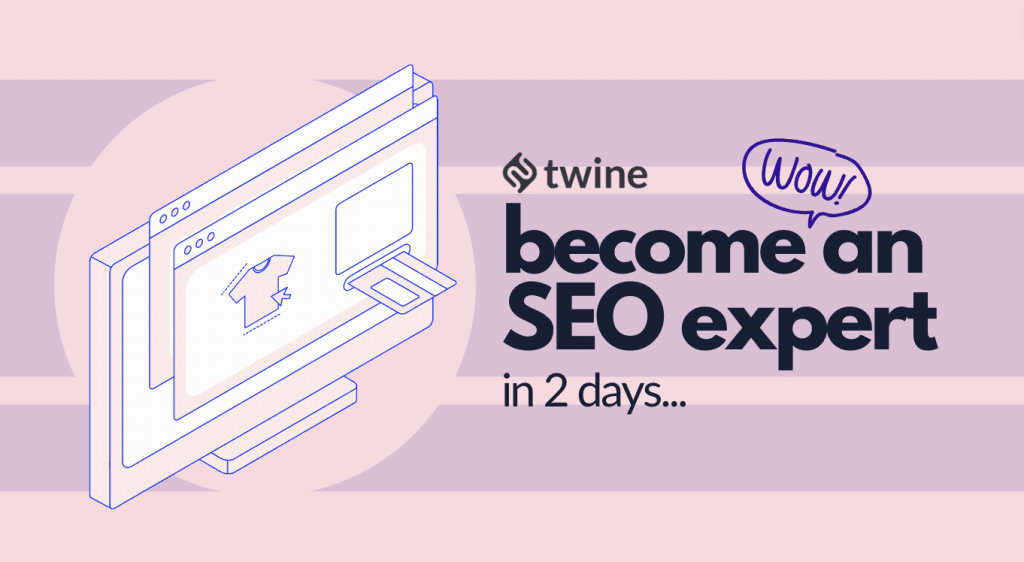For more Online Learning Tools, check out the Freelancer Toolkit…

Search engine optimization (SEO) is a field that is always changing. As a freelancer, you will have the chance to work with a wide range of clients and industries to help them improve their online presence and search engine rankings. But how do you become an SEO freelancer?
To become an SEO freelancer, you need to know a lot about SEO principles and best practices. You also need to be able to do keyword research, analyze website metrics, and make and use SEO strategies.
In addition to technical skills, you need to have strong communication and project management skills. You must be able to communicate well with clients so you can understand their needs and goals and get things done quickly and well.
Networking and marketing yourself through social media and professional organizations can also help you find new opportunities and grow your freelance business. With dedication and hard work, you can turn your passion for SEO into a successful and rewarding career as a freelancer.
Let’s get right into it!
Are you looking for your next job in SEO? We can help.
Can You Really Become an SEO Freelancer in Just 2 Days?

Okay, so it may not be possible to fully establish yourself as a freelancer in such a short amount of time, but there are some steps you can take to get started on your journey. To learn SEO in just two days requires effort, dedication, and time.
While there are people who are fast learners, it still takes time for the new knowledge to sink in, especially if it’s in a new field. On top of that, you need to constantly put in the time and effort to continuously learn the subject matter to be an expert in the field, but that’s for another post.
To get started, you can build your knowledge and skills through online courses and SEO resources. As you go through the material, you will need to identify the skills and areas of expertise in which you want to become an expert.
Next, determine your target market and clients. From there, make sure you have a strong presence online and start making a portfolio of your work. This is good for showcasing your skills to potential clients.
From there, you can start creating your case study, which you can use to land a job if that’s what you are ultimately after.
Some SEO Areas to Specialize in

SEO is a broad field, and it consists of a bunch of different areas you can specialize in. All of them offer the same opportunities, as there is a lot of overlap needed to optimize a site. Below are some overviews of each area to give you an idea of which path you want to take:
On-Site SEO
Also called on-page SEO, this refers to the practice of optimizing different elements, such as the content and the HTML source code of a page on a website, in order to rank higher on the search engine results page (SERP).
There are a lot of elements that go into optimizing an article or blog post. These include things such as the title tags, headings to be used (H1, H2, H3, etc.), meta descriptions, the content itself, and even the URL.
Off-Site SEO
This area of SEO applies to all the actions taken outside of the website you’re working on to improve its rankings in the SERPs. This involves improving search engine and user perceptions of a website’s relevance, authority, popularity, and trustworthiness.
For off-site SEO to be successful, other reputable sources on the internet (websites, pages, people, etc.) should be linked to your website. Think of it as someone voting for the quality of your website’s content.
Also known as off-page SEO, this covers various practices including link building (which will be discussed in the next section), guest blogging, some sort of marketing influencer, and social media.
In essence, it helps build a website’s relevance, authority, popularity, and trustworthiness.
Effective Keyword Research
Another area in which you can specialize as an SEO freelancer is keyword research. This refers to the process of finding and analyzing search terms that people enter into search engines.
These terms are often used for different domains of SEO, like on-page SEO, and even in digital marketing, like pay-per-click (PPC). This type of research can reveal valuable insights, such as which queries or keywords to target, how popular they are, how difficult it is to rank for them, and more.
Effective research can help you find the right keywords to target while providing important data to understand what your target audience is searching for on Google or other search engines.
Link Building
Building backlinks is the foundation of off-page SEO. Search engines use backlinks to indicate the quality of the content they are linking to.
This means that a site that contains many high-value links is more likely to rank well than one with fewer backlinks.
Link building is required to gain backlinks to a website. This is the process of getting other websites to link to your site or a site you manage.
These links are used by users to navigate between pages on the internet. They are also used by search engines to crawl the web, which helps them understand the relevance and authority of a page.
Over time, link building is used to build a site’s authority and help increase its organic traffic.
You Don’t Need to be an Expert in All Areas
While these areas go hand-in-hand, you don’t necessarily need to be an expert in all of them. However, it pays to have some sort of knowledge in these domains to grow your SEO career.
But since you’re just starting, the best way is to focus on one area and grow your skills from there. This allows you to find work right away and practice your skills in real-world scenarios.
How to Become a Freelance SEO in 8 Steps
Now that you have a little bit of an idea about SEO and its different areas, we can now discuss how you can become an SEO specialist in just eight steps.
Please note that this isn’t a magical formula that will turn you into an expert right away. This is just a roadmap that will help you get started on your journey. Let’s begin!
1. Take an SEO Course
I hate to point out the obvious, but you need to take a course if you want to become a freelance SEO right away. Yes, you can do a bit of reading and watch a couple of YouTube videos. But they aren’t enough to give you the foundation you need.
An SEO course can cover all the basics you need to have an understanding of the industry. Below are some free SEO courses you can take:
- HubSpot Academy’s SEO Certification Course
- Yoast SEO for Beginners
- SEO Training Course by Moz on Udemy
2. Build Your SEO Toolkit
While skills are necessary to advance your SEO career, you also need tools to help you achieve your goals.
An SEO toolkit has all the tools you need to make different websites work better for search engines. They can vary depending on the area you want to specialize in, but some can be used in all domains.
Here are some tools you might want to add to your toolkit:
- Google Search Console – This free tool allows you to index and monitor your site’s presence in Google SERP.
- SEMRush – This is a paid all-in-one marketing and SEO tool kit that allows you to do keyword research, monitor your competitor, manage your site’s performance, and more all in one place.
- Ahrefs – Similar to SEMRush, this paid tool can also help you with keyword research, competitor analysis, and auditing and optimizing your website.
- SEOQuake – This is a free Chrome extension that allows you to quickly perform on-page audits and website comparisons.
- Google Trends – This free tool gives you insight into trends around topics, which can help in keyword research.
3. Create a Personal Website
You won’t be able to land your first client without anything to show. That’s why you need a personal website with a blog to showcase your newly acquired skills.
On top of that, you can use this website as a tool to apply all the things you’ve learned and experiment with various strategies that you can pitch to your potential clients. It will act as your portfolio so that new clients can see what you can offer.
4. How to Find Work as an SEO Freelancer
Okay, this is the challenging part. Whether you’re looking for an SEO-related job or something else, finding work as a freelancer can be pretty tough. But that would only be the case if you didn’t know where to look.
Instead, try looking at up-and-coming job sites like Twine, where there are more opportunities for new SEO specialists. This will make it easier to land your first job, gain experience, and build a portfolio.
5. Update Your Resume and Any Portfolio Work
Even though you have a personal website, some clients would still want to see your resume. Once you’ve finished your first project, make sure that you add it to your resume and portfolio as proof of your previous experience and accomplishment.
I know you’re wondering if you should keep your prior experience before freelancing. The answer depends on what your previous jobs were like.
If your experiences are somewhat related to the skills needed as an SEO specialist, you can add them to your resume.
6. Make New Connections
As a freelancer, you need to learn how to network and make new connections. This will allow you to work with clients who are not available through freelancing platforms.
For example, you can set up a LinkedIn account and connect with companies that might need help with SEO. But connections aren’t just limited to your clientele.
You can also make new connections with other SEO experts and learn some secrets that you can apply to your strategies.
You can join Facebook groups or LinkedIn groups to connect with other specialists in your field. These connections can also help you get new information about the Google algorithm or any updates that apply to your industry.
7. Decide on Your Pricing Strategy
Once you have your resume and portfolio, it’s now time to decide on how you’ll price your services. When you create your prices, there are various factors you need to consider.
First, the size of the website you’ll be working on Websites with more pages, like an eCommerce site, will likely be more expensive than those for small businesses like dental clinics.
Next, you should also consider what they want to achieve with their business strategy. This can include getting on Google’s page 1 or maybe just increasing their organic traffic.
Lastly, you also need to consider your service model, or how you want to get paid, whether it’s hourly, monthly, or project-based.
After you’ve thought about these things, it will be easier to come up with a pricing strategy.
8. Keep Improving Your SEO Skills
Search engines’ algorithms continuously change. So, as an SEO marketer, you need to keep learning more about how search engines work, especially after an update.
This could include learning tips from experts, following blogs from leaders in the industry, or just looking out for any news regarding search engines.
Create Your Own Case Studies
Don’t just rely on getting clients to build your portfolio. If you have the time, create your own case studies to practice your skills and showcase your credentials.
You can build new sites and use them to achieve a variety of business goals that you can add to your portfolio. Look at other companies’ case studies and use them as inspiration for your own.
Final Word
I know that this can be a lot to take in, but you don’t have to do it all at once. Remember, to succeed as an SEO freelancer, it’s important to have a strong understanding of the basic principles, best practices, and overall good communication.
This is important because you will be working with clients, so you need to understand their needs better and deliver results quickly and well.
With dedication and hard work, it is possible to turn your passion for SEO into a successful and rewarding career.
Want to be recognized as an expert in your field? At Twine, we have dozens of top-quality jobs being posted each and every day. There is a job waiting for your skills in everything from design to marketing, development, and copywriting. Join the marketplace of diverse creative talent here.



